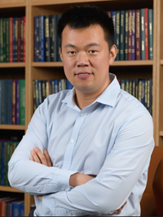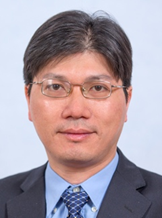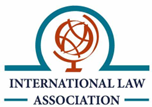SMU-Fudan Workshop
Asian Cities and the International Legal Order
Yong Pung How School of Law,
Singapore Management University
10 – 11 July 2025, Singapore
SYNOPSIS
In recent years, ‘cities and international law’ has become a rich and diverse research field (Aust & Nijman, 2021). In the contemporary international order, western cities, such as the Hague – “the Legal Capital of the World” (van Krieken & McKay), continue to play a key role in shaping contemporary international law. However, as critiqued by Cai, the existing literature, focuses to large extent, on western cities, especially European cities (Cai, 2022). This Workshop will shift the focus to Asia – the world's most rapidly urbanizing region and the engine of economic growth. The workshop aims to examine the role of major Asian cities in the international legal order from three dimensions: 1) the challenges of urbanisation; 2) the impact of Asian cities on the international legal order; and 3) the role of cities as a transnational actor. According to UN-Habitat, more than half of the global urban population (> 2.2 billion people) live in Asia. Asia’s urban population is expected to grow by 50% (an additional 1.2 billion people) by 2050. Asian cities are at the forefront of securing a sustainable future. Therefore, the first question the Workshop examines concerns what are the difficulties and opportunities for Asian cities to implement relevant international law towards sustainability, in a rapidly changing urban context? More specifically, how to maintain cities as economic powerhouses amidst challenges such as “environmental degradation, increasing impacts of natural and man-made disasters, the persistence of slums and social exclusion, lack of affordable housing and unemployment” (UN-Habitat). The second question of the Workshop is: what are the implications of economic and geopolitical changes for Asian cities in international legal order? With a fast growing economy among many Asian countries, Asian cities are becoming more ambitious in shaping the international legal order. For example, in recent years, China has established a number of international organizations, located in either Beijing or Shanghai. This includes the Asian Infrastructure Investment Bank, New Development Bank and China International Commercial Court. Meanwhile, Singapore has been attracting international dispute resolution bodies, such as Permanent Court of Arbitration, to set up branch in the Lion City. The interaction between Asian cities and the international legal order, particularly through international organizations, requires a closer look. Thirdly, from Saskia Sassen’s Global Cities (London, New York, Tokyo, 1991) to Time magazine’s “Nylonkong” (a portmanteau of New York, London, Hong Kong) (2008), Asia boasts cities as trade, shipping and financial hubs in the global economy. In recognition of the hyperconnected nature of the contemporary world, it is worth examining local regulatory systems of Asian major cities, such as Singapore and Shanghai, and their extraterritorial spillover impact from a transnational law approach. Ultimately, the Workshop intends to enrich debate and discussions on cities as a non-traditional player in the development of state-centric international law with Asian practice, and, more generally, the changing landscape of cities and international legal order.
PROGRAM OF SPEAKERS
The full program can be viewed here.
REGISTRATION The workshop is free of charge for all Academics, Government Officials, SMU Staff and SMU Students. Limited seats available. Click here to register. Registration closes on 25 June 2025. Successful registrants will receive a confirmation email by the 1st of July 2025 to confirm your registration. VENUE AND TIMEVenue:
Learning Lab 3 and 4, Kwa Geok Choo Law Library, Singapore Management University Time: 10 July 2025, 9am-5:30pm 11 July 2025, 9am-3:15pm
CONFERENCE CO-CHAIRS Associate Professor LIU Nengye, Yong Pung How Fellow (CCLA), Yong Pung How School of Law, Singapore Management University Prof LIU Nengye teaches and conducts research on law and sustainability at SMU. Prof LIU has taken the lead to edit three books: “The European Union and the Arctic” (Brill, 2017), “Governing Marine Living Resources in the Polar Regions” (Edward Elgar, 2019); “The Law of the Sea and the Planetary Crisis” (Routledge, 2025); published 50+ refereed journal articles and book chapters in the fields of the law of the sea and international environmental law; and delivered 100+ presentations about his research findings across five continents. He sits on the editorial board of Marine Policy, Ocean Development and International Law and Polar Record. Prof Liu is the Founding Director of Singapore Sustainable Futures Initiative (SSFI) and the Founding Chair of Steering Committee, Asia Pacific Research Alliance on Law and Sustainability. He also serves as a member of International Law Association’s Committee on Urbanization and International Law Potential and Pitfalls (2024 – present) and the Co-Chair of American Society of International Law’s Law of the Sea Interest Group (2025 – present).  Professor CAI Congyan, School of Law, Fudan University Prof. CAI Congyan teaches and researches international legal theory, foreign relations law, international investment law, and Chinese international law policy and practice. He published with American Journal of International Law, European Journal of International Law, German Yearbook of International Law, Journal of International Economic Law, etc. His recent books mainly include the Cambridge Handbook of China and International Law (co-edit, CUP, 2024), the UN Security and the Maintenance of Peace in a Changing World (co-author, CUP, 2024), the BRICS and the New International Legal Order on Investment (co-edit, Brill, 2020), the Rise of China and International Law (OUP, 2019), and On “International Law-Based International Order” (Social Sciences in China, Vol.44(3), 2023). INSTITUTIONAL PARTNERSCentre for Commercial Law in Asia, Singapore Management University  Fudan University School of Law  Urban Institute, Singapore Management University  International Law Association 
|